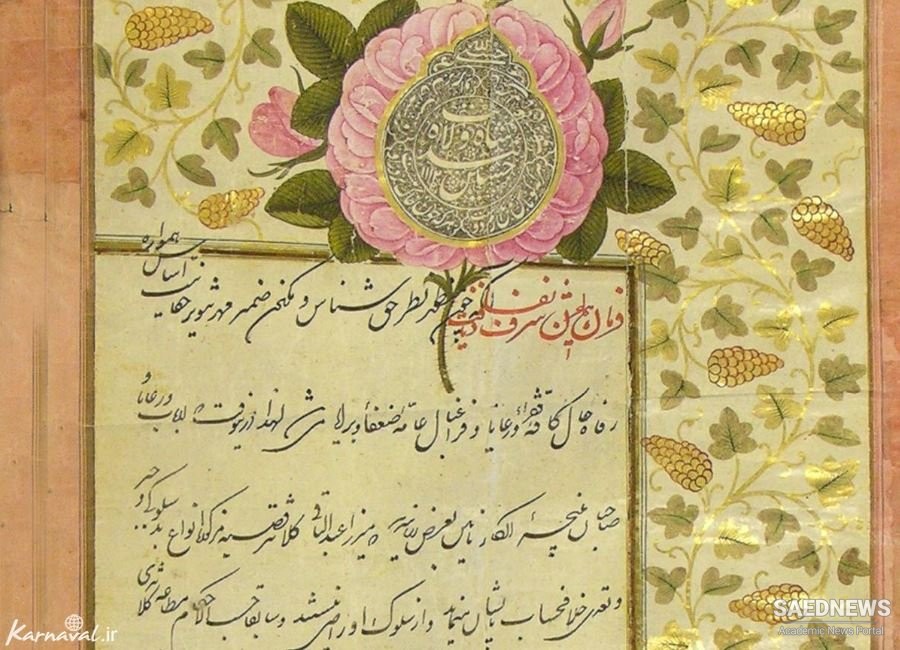Cunningly exploiting the concept of moral infallibility associated with the office of shah, a Shia version of the maxim "the king can do no wrong", they successfully tempted Husain to indulge in wine drinking. Here again the Princess Maryam Begum, herself a hardened wine drinker, played a significant role. Although at first sight these events appear to stem from a palace intrigue on the part of various pressure groups composed of court and state dignitaries, their real causes lie deeper.
These will be dealt with in our concluding remarks, but at least some allusion to them is necessary at this point in the discussion. It will be recalled that Shah 'Abbas I had not only destroyed the military might of the Qizilbash but also neutralised the more strongly religious elements of the group, the sufis proper - by that time the arms-bearing ghazls could probably no longer be regarded as actually identical with the practising members of the sufl order.
'Abbas I had put the latter firmly in their place in 998/1589-90 after a trial of strength to which they had challenged him. From then on he had suppressed their influence more and more, most effectively by a policy of ignoring them or treating them with contempt. After his death their standing suffered still further, especially when in the reign of Shah 'Abbas II a group of well-versed theologians appeared on the scene who were no longer prepared to recognise "the mystic vagaries of the earlier period".
This group, the 'ulama', with the mujtahid at their head, advanced unassailable Shia doctrines to refute the religious concepts of the sufls and resolutely strove, for their own part, to win power over the shah. In the case of Shah Sulaiman and, as will now be seen, Shah Sultan Husain, they succeeded. Of the 'ulama, the group which thus greatly increased in strength, a prominent representative was Muhammad Baqir Majlisi.
As his theological writings prove, he was a man of great erudition, but this in no way diminished his interest in secular power. Nor, certainly, did it counteract a religious intolerance on his part from which not only Christians and Jews but also Sunnis, the aforementioned sufls and even philosophers were made to suffer. The shah let him have his own way. Far from unifying the population of the country, this policy of intolerance, which was also pursued by Muhammad Baqir's grandson and successor Mir Muhammad Husain, tended to sow dissension because it encouraged people to denounce one another. It was one of the factors that subsequently, in the hour of need, rendered religious commitment ineffective as a stimulus to popular resolve to defend the country.


 Sultan Husain
Sultan Husain














































